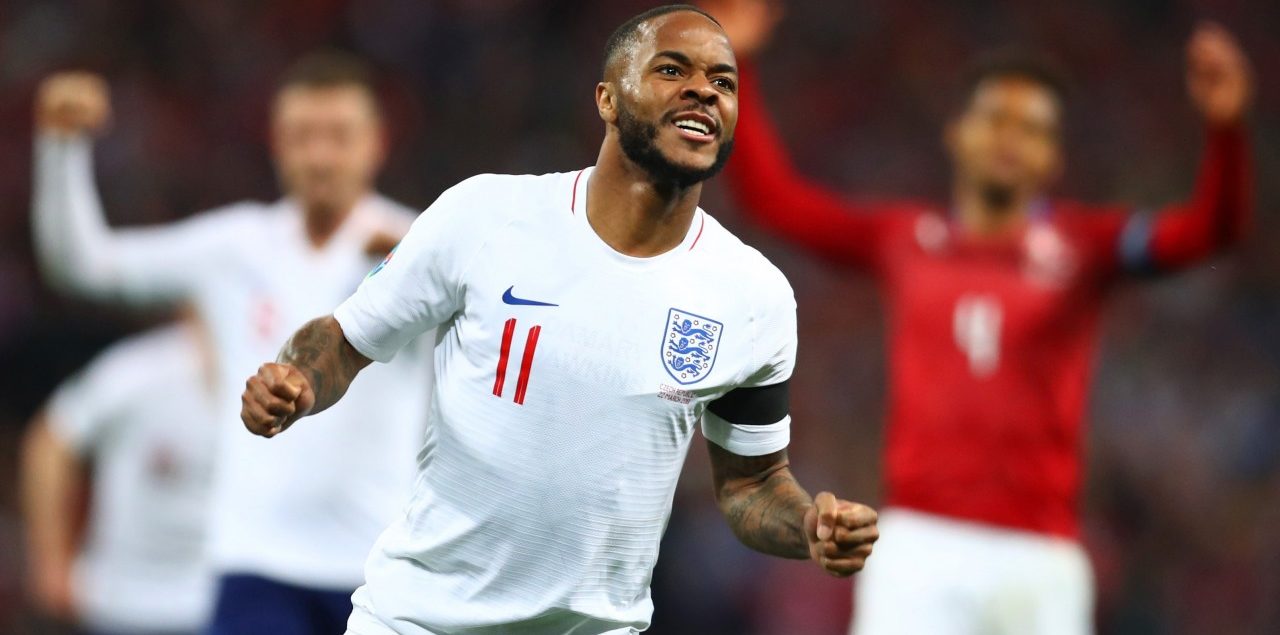After England-Bulgaria, it’s time for UEFA to stop playing the neutral
After the racist chants during the England vs. Bulgaria game, the impetus is on UEFA to act.
When any football fan on Twitter saw that England vs. Bulgaria was trending last Monday, they could’ve interpreted it in several ways: perhaps England had bottled it against a national team far below their caliber; perhaps Raheem Sterling had scored a hat trick; or perhaps Marcus Rashford had scored an outlandish free kick. Instead, the qualifier for Euro 2020 made headlines for all the wrong reasons.
If anyone looked through pictures of the game in the immediate aftermath, they would be hard pressed to find many pictures of the actual match. Instead, all lenses had been trained up towards the stands, capturing snapshots of vile scenes among fans.
Pictures capture the moments as a section of Bulgaria’s support, mostly clad in all-black, hurled monkey chants at English players accompanied with Nazi salutes. But beyond these vile actions by this fraction of supporters, these pictures tell of a more disappointing story, a story of an international footballing organization doing little more than lip service to a grave and damaging social cause.
The brazenness of these racists who chose not to hide their faces underscores the complete lack of fear of potential repercussions. These men have no shame when committing these disgraceful acts because they know they will go unpunished. And for that, UEFA should be ashamed.
Although play was halted twice in Sofia, the game was completed in a 6-0 trouncing of Bulgaria by the Three Lions. Had play been stopped one more time, English manager Gareth Southgate claims his team would’ve left the field. Step One protocol was enforced, but it remains unclear why Step Two was not enforced, which would’ve seen players sent to the dressing room after the second stoppage for racist abuse.
In the aftermath, both Bulgaria and England were fined, prompting many to call out UEFA. England were officially cited for “disruption of national anthem” and “insufficient number of traveling stewards.” But as past incidents have shown, financial punishment has been a futile motivator for change. As long as UEFA continues to pursue policies that punish racist behavior through monetary means, nothing will change.
The incident becomes more sickening when reading the denials from both Bulgarian players and staff, with starting keeper Plamen Iliev going as far as saying that the home fans “behaved well” in the team’s outing against England. Bulgarian manager Krasimir Balakov believed the England players “overreacted a bit,” as he “didn’t hear any bad language used.” Before the match on Monday, he had maintained that England had a larger problem with racism than Bulgaria did.
Borislav Mihaylov, president of the Bulgarian Football Union, announced that he would be resigning from his position after the incident, but showed a lack of humility or regret when he maneuvered his press conference to take shots at Southgate himself, insisting only the English manager heard racist chants before the second stoppage. He further added that Bulgaria “is not a racist country.”
These statements proved quite contradictory to the actions of Ivelin Popov, Bulgaria’s captain, who was seen speaking to fans in an attempt to diffuse the tension-filled atmosphere. After the game, he said the following:
“First, I tried to talk with the stewards who were supposed to control the situation. We’re all suffering from that kind of behavior. Do you think a foreign player would like to come and play in Bulgaria after what happened tonight? Racism is a world problem that needs to be eradicated. We’re all people regardless of the skin color.”
Popov’s incredibly honest and forthcoming comments might not be popular with his now-former manager and teammates, but they speak to a greater desire to address a societal problem that poisons the beautiful game. Nevertheless, markable progress will not be made until the major organizational bodies develop strong leadership who can exhibit fortitude in strongly condemning and punishing racist behavior.
The time to move beyond financial punishment is now. If UEFA has a serious determination to deter and prevent racism in the future, the transition from pitiful fines and short stadium bans to points deductions and tournament expulsion should commence immediately. For too long, UEFA has been known for weak and ineffective leadership, especially in the face of racism. The time for them to move is now.
By: Brandon Duran
Photo: Clive Rose
